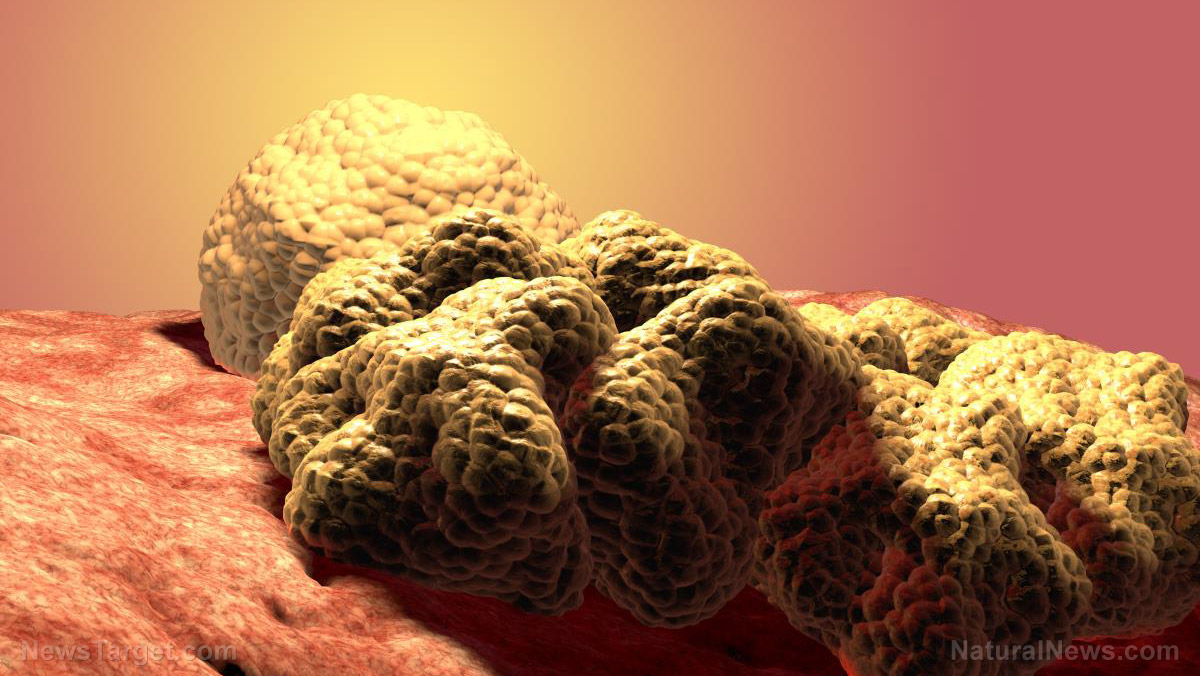Scientists claim to have developed targeted chemotherapy pill that can “annihilate” tumors while leaving healthy cells alone
08/09/2023 / By Ethan Huff

New research published in the Call Chemical Biology journal by City of Hope demonstrates the power of a new “cancer-killing pill” that researchers say can kill solid tumors will leaving healthy cells unharmed.
Published on August 1, the preclinical research findings suggest that the new drug, known as AOH1996 and named after Anna Olivia Healey, can selectively disrupt DNA replication and repair of cancer cells.
Linda Malkas, the study’s main author, has been working on AOH1996 for about 20 years in honor of Healey who was born in 1996 and died of a rare form of cancer called neuroblastoma when she was just nine years of age.
City of Hope, a private, non-profit clinical research center based out of California, is currently one of the largest cancer research and treatment organizations in the United States. The facility released a press release about AOH1996 claiming that it “appears to annihilate all solid tumors” while avoiding healthy cells and tissue.
With successful cell and animal models for AOH1996 now on the books, the next step is to test the drug in actual humans. A Phase 1 clinical trial is now underway, according to Malkas.
(Related: Several years back, the American Cancer Society complained that treating patients conventionally is creating too large of a “carbon footprint,” which they say is warming the planet.)
AOH1996 targets all mutated versions of PCNA, setting it apart from all other targeted cancer therapies
The preclinical study shows in further detail how AOH1996 targets PCNA, a cancerous version of a protein called proliferating cell nuclear antigen. Cancerous variants of PCNA are “critical in DNA replication and repair” of all cancer tumors, and AOH1996, according to City of Hope, stops that process entirely.
“Data suggests PCNA is uniquely altered in cancer cells, and this fact allowed us to design a drug that targeted only the form of PCNA in cancer cells,” Malkas says.
When administered orally at a certain dose, AOH1996 “suppresses tumor growth but causes no discernable side effect,” the study itself reads.
At the current time, most other targeted cancer therapies on the market focus on just a single pathway. This is inadequate because cancer cells can still mutate and eventually become resistant to or evade the therapy, rendering it ineffective.
AOH1996 functions uniquely in that it targets the mutated versions of PCNA, setting it apart from all other targeted cancer therapies currently available to patients.
So far, the results of human testing “have been promising,” Malkas stated, adding that AOH1996 “can suppress tumor growth as a monotherapy or combination treatment in cell and animal models without resulting in toxicity.”
Fellow lead author Long Gu also commented on the results, bragging that nobody else has ever targeted PCNA as a therapeutic “because it was viewed as ‘undruggable.'”
“But clearly City of Hope was able to develop an investigational medicine for a challenging protein target,” he added.
“We discovered that PCNA is one of the potential causes of increased nucleic acid replication errors in cancer cells. Now that we know the problem area and can inhibit it, we will dig deeper to understand the process to develop more personalized, targeted cancer medicines.”
In short, AOH1996 selectively kills cancer cells by disrupting their reproductive cycle. And it does this without harming the reproductive cycle of healthy stem cells, which the body needs for strength and subsistence.
Another thing AOH1996 does is make cancer cells more sensitive to other chemical agents that can damage their DNA and destroy them. One example is cisplatin, a common chemotherapy drug used in Western medicine to treat cancer.
Interested in learning more about how to fight cancer? Check out CancerSolutions.news.
Sources for this article include:
Submit a correction >>
Tagged Under:
AOH1996, breakthrough, cancer tumors, chemo, City of Hope, discoveries, health science, Oncology, real investigations, research, tumor
This article may contain statements that reflect the opinion of the author
RECENT NEWS & ARTICLES
COPYRIGHT © 2017 ONCOLOGY NEWS




















